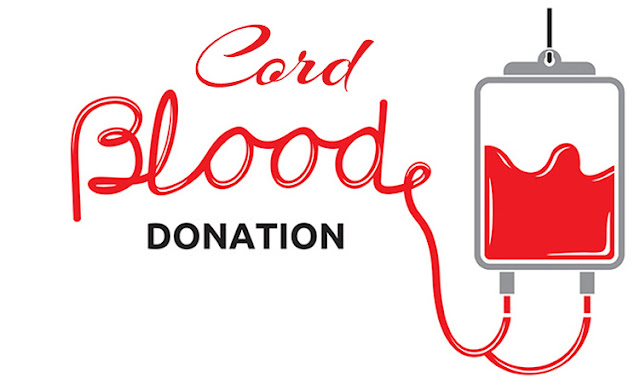Cord blood donation – Many countries have a national cord blood banking system. Unfortunately, the US is not one of them. There are banks in the US which do take donations from the general public in certain areas. Some of them are for-profit brokers who sell the cord blood to patients and research facilities, and others are set up as non-profit collection centers. Most of them all connect their databases to the National Marrow Donor Program, which conducts searches for patients needing cord blood for transplant or treatment. It is important to understand that once you give your cord blood away, it will most probably never be available to you or your family. If you have decided not to bank privately for your family, please consider donating it to one of these collection facilities as opposed to throwing away this valuable resource.
Cord blood donation, blood collected and stored from the umbilical cord of a baby at birth, is one of three sources for blood transfusions in illnesses like leukemia and lymphoma. The other two sources are bone marrow and peripheral or circulating blood. This type of transplant does not have to match the recipient as closely as the other two. At birth, a mother can have the infant cord blood stored for her own family. Some people also will donate cord blood to blood banks or specific people who are seriously ill.Cord blood is rich in blood-forming cells and that is why it can be used for transplants.
Cord blood donation, Some examples of where banked cord blood might be used include people who are in need of a transplant quickly, or people who are having a hard time finding a matching bone marrow donor. Because cord blood does not need to match a tissue type as closely as other tissue transplants, people from racially or ethnically diverse communities can be helped more readily by a cord blood transplant. Cord blood is often stored on site at a hospital or trauma center and can be used more quickly when needed in an emergency. It is a viable choice to have a cord blood donation used in these situations. Many hospitals now have banked umbilical cord blood.
Donating cord blood to a public cord blood bank is free. When you donate umbilical cord blood, it is available to any patient in need of a blood stem cell transplant--it is not reserved for your family's own use. For more on donating cord blood, call the National Marrow Donor Program at 1-800-627-7692.
I've been involved with blood donation since the 1980s because there is a critical need.Get here how to donate a blood
Donna Reed

No comments:
Post a Comment